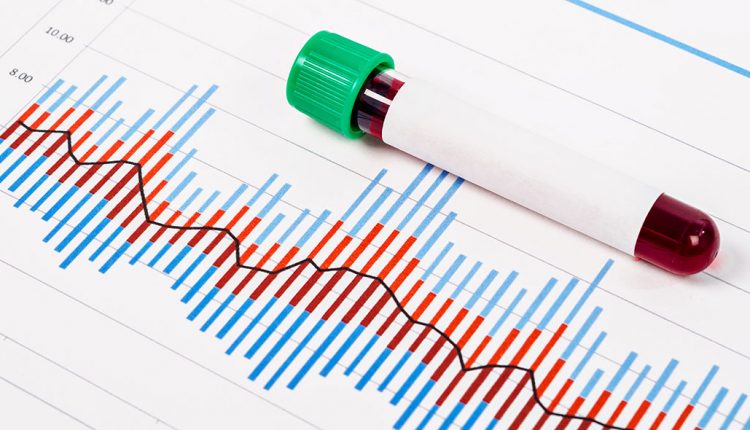What is the glucose used for
What is glucose and what is used for?
Glucose is a crucial source of energy for living cells, and its primary role is to serve as a fuel for various cellular activities. Once glucose is absorbed by cells, it undergoes cellular respiration to produce adenosine triphosphate (ATP), the energy currency of cells. Here are some key ways in which glucose is used in the body:
- Cellular Respiration:
- Glucose is broken down through a series of biochemical reactions in a process called cellular respiration. This occurs in the mitochondria of cells and involves the conversion of glucose into ATP. The ATP produced is used to power essential cellular functions, including muscle contraction, maintaining cell membrane potential, and active transport across cell membranes.
- Energy for Metabolism:
- Glucose provides energy for the metabolic processes that occur within cells. Metabolism includes the synthesis of biomolecules, the breakdown of molecules for energy, and the regulation of cellular processes.
- Brain Function:
- The brain is highly dependent on glucose as a source of energy. Glucose is transported across the blood-brain barrier and is essential for maintaining cognitive functions, concentration, and overall brain health.
- Muscle Activity:
- Muscles use glucose during physical activity. The breakdown of glucose through cellular respiration provides the energy needed for muscle contraction. During intense exercise, muscles may rely on both glucose and stored glycogen for energy.
- Storage as Glycogen:
- Excess glucose is often converted into glycogen for short-term storage in the liver and muscles. When energy is needed, glycogen can be broken down into glucose through a process called glycogenolysis.
- Maintenance of Blood Glucose Levels:
- The body carefully regulates blood glucose levels to ensure a constant supply of energy for cells. Hormones such as insulin and glucagon help control blood glucose levels by promoting the uptake or release of glucose from storage.
- Synthesis of Biomolecules:
- Glucose serves as a precursor for the synthesis of various biomolecules, including nucleic acids, amino acids, and fatty acids. These molecules are essential for the structure and function of cells.
- Production of Lactate (during Anaerobic Conditions):
- In the absence of oxygen, as in strenuous exercise, glucose can undergo anaerobic glycolysis, producing lactate as a byproduct. This process provides a rapid but less efficient way of generating energy.
In summary, glucose is a versatile molecule that plays a central role in providing energy for cellular activities, supporting brain function, and contributing to the synthesis of essential biomolecules. The body tightly regulates glucose levels to ensure a constant and sufficient energy supply for maintaining life processes.
Dangers of excess glucose:
Excess glucose, especially in the context of prolonged elevated blood sugar levels, can pose several health risks. Consistently high levels of blood glucose, a condition known as hyperglycemia, can contribute to various complications. Here are some of the dangers associated with excess glucose:
- Type 2 Diabetes:
- Prolonged exposure to elevated blood glucose is a significant risk factor for the development of type 2 diabetes. In this condition, cells become resistant to the effects of insulin, leading to impaired glucose uptake.
- Cardiovascular Issues:
- Chronic hyperglycemia is associated with an increased risk of cardiovascular diseases. High blood sugar levels can contribute to the development of atherosclerosis (hardening of the arteries), which may lead to heart attacks and strokes.
- Kidney Damage (Nephropathy):
- The kidneys play a crucial role in filtering blood, and high blood glucose levels can lead to kidney damage over time. This condition, known as diabetic nephropathy, may progress to chronic kidney disease.
- Eye Complications (Retinopathy):
- Elevated blood sugar levels can damage the small blood vessels in the eyes, leading to diabetic retinopathy. This condition may result in vision impairment and, in severe cases, blindness.
- Nerve Damage (Neuropathy):
- Chronic hyperglycemia can cause damage to nerves throughout the body, leading to diabetic neuropathy. Symptoms may include pain, tingling, or numbness in the extremities.
- Weakened Immune System:
- High blood sugar levels can weaken the immune system, making individuals more susceptible to infections. Poorly controlled diabetes may result in slow wound healing and an increased risk of infections.
- Increased Risk of Infections:
- Elevated glucose levels provide an environment conducive to the growth of bacteria and fungi. This can contribute to an increased risk of skin infections, urinary tract infections, and other microbial infections.
- Hormonal Imbalances:
- Chronic hyperglycemia can disrupt the balance of hormones in the body, including insulin and glucagon. This imbalance may affect various physiological processes and contribute to metabolic dysfunction.
- Increased Risk of Cancer:
- Some studies suggest a link between chronic high blood sugar levels and an increased risk of certain types of cancer. The mechanisms underlying this association are complex and not fully understood.
- Weight Gain and Obesity:
- Excess glucose that is not used for energy can be converted into fat and stored in adipose tissue, contributing to weight gain and obesity. Obesity is a risk factor for various health conditions, including diabetes and cardiovascular diseases.
- Mental Health Issues:
- There is evidence suggesting a connection between diabetes and mental health issues, such as depression and cognitive decline. Chronic hyperglycemia may contribute to these conditions.
It’s important to note that the severity and manifestation of these dangers can vary among individuals, and the risks are often influenced by factors such as genetics, lifestyle, and overall health. Proper management of blood glucose levels through a balanced diet, regular physical activity, medication (if prescribed), and regular monitoring is crucial for preventing complications associated with excess glucose. Individuals with concerns about their blood sugar levels should consult with healthcare professionals for personalized advice and management.

